It reads. It talks. It collates mountains of data and recommends business decisions. Today’s artificial intelligence might seem more human than ever. However, AI still has several critical shortcomings.
Category: information science – Page 69
Taming the Machine, with Nell Watson
Those who rush to leverage AI’s power without adequate preparation face difficult blowback, scandals, and could provoke harsh regulatory measures. However, those who have a balanced, informed view on the risks and benefits of AI, and who, with care and knowledge, avoid either complacent optimism or defeatist pessimism, can harness AI’s potential, and tap into an incredible variety of services of an ever-improving quality.
These are some words from the introduction of the new book, “Taming the machine: ethically harness the power of AI”, whose author, Nell Watson, joins us in this episode.
Nell’s many roles include: Chair of IEEE’s Transparency Experts Focus Group, Executive Consultant on philosophical matters for Apple, and President of the European Responsible Artificial Intelligence Office. She also leads several organizations such as EthicsNet.org, which aims to teach machines prosocial behaviours, and CulturalPeace.org, which crafts Geneva Conventions-style rules for cultural conflict.
Selected follow-ups:
• Nell Watson’s website (https://www.nellwatson.com/)
• Taming the Machine (https://tamingthemachine.com/) — book website.
• BodiData (https://www.bodidata.com/) (corporation)
• Post Office Horizon scandal: Why hundreds were wrongly prosecuted (https://www.bbc.co.uk/news/business-5…) — BBC News.
• Dutch scandal serves as a warning for Europe over risks of using algorithms (https://www.politico.eu/article/dutch…) — Politico.
• Robodebt: Illegal Australian welfare hunt drove people to despair (https://www.bbc.co.uk/news/world-aust…) — BBC News.
• What is the infected blood scandal and will victims get compensation? (https://www.bbc.co.uk/news/health-485…) — BBC News.
• MIRI 2024 Mission and Strategy Update (https://intelligence.org/2024/01/04/m…) — from the Machine Intelligence Research Institute (MIRI)
• British engineering giant Arup revealed as $25 million deepfake scam victim (https://edition.cnn.com/2024/05/16/te…) — CNN
• Zersetzung psychological warfare technique (https://en.wikipedia.org/wiki/Zersetzung) — Wikipedia.
Music: Spike Protein, by Koi Discovery, available under CC0 1.0 Public Domain Declaration.

Significance of Wave Activity for Understanding Titan’s Climate
Lakes and seas of liquid methane exist on Saturn’s largest moon, Titan, due to the moon’s bone-chilling cold temperatures at-290 degrees Fahrenheit (−179 degrees Celsius), whereas it can only exist as a gas on Earth. But do these lakes and seas of liquid methane strewn across Titan’s surface remain static, or do they exhibit wave activity like the lakes and seas of liquid water on Earth? This is what a recent study published in Science Advances hopes to address as a team of researchers have investigated coastal shoreline erosion on Titan’s surface resulting from wave activity. This study holds the potential to help researchers better understand the formation and evolution of planetary surfaces throughout the solar system and how well they relate to Earth.
For the study, the researchers used a combination of shoreline analogs on Earth, orbital images obtained by NASA’s now-retired Cassini spacecraft, coastal evolution models, and several mathematical equations to ascertain the processes responsible for shoreline morphology across Titan’s surface. Through this, the researchers were able to construct coastal erosion models depicting how wave activity could be responsible for changes in shoreline morphology at numerous locations across Titan’s surface.
“We can say, based on our results, that if the coastlines of Titan’s seas have eroded, waves are the most likely culprit,” said Dr. Taylor Perron, who is a Cecil and Ida Green Professor of Earth, Atmospheric and Planetary Sciences at the Massachusetts Institute of Technology and a co-author on the study. “If we could stand at the edge of one of Titan’s seas, we might see waves of liquid methane and ethane lapping on the shore and crashing on the coasts during storms. And they would be capable of eroding the material that the coast is made of.”
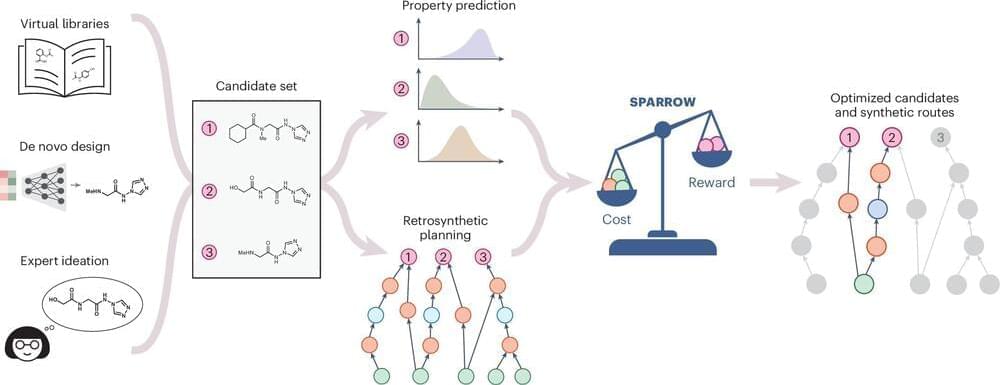
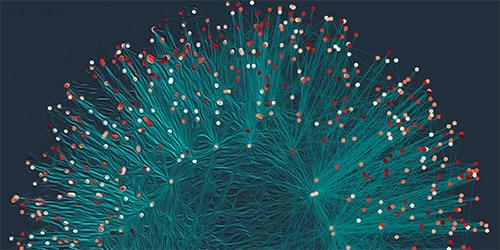
Strange Kinetics Shape Network Growth
A connection between time-varying networks and transport theory opens prospects for developing predictive equations of motion for networks.
Many real-world networks change over time. Think, for example, of social interactions, gene activation in a cell, or strategy making in financial markets, where connections and disconnections occur all the time. Understanding and anticipating these microscopic kinetics is an overarching goal of network science, not least because it could enable the early detection and prevention of natural and human-made disasters. A team led by Fragkiskos Papadopoulos of Cyprus University of Technology has gained groundbreaking insights into this problem by recasting the discrete dynamics of a network as a continuous time series [1] (Fig. 1). In doing so, the researchers have discovered that if the breaking and forming of links are represented as a particle moving in a suitable geometric space, then its motion is subdiffusive—that is, slower than it would be if it diffused normally.

AI that defeated humans at Go could now help language models master mathematics
👉 Researchers at the Shanghai Artificial Intelligence Laboratory are combining the Monte Carlo Tree Search (MCTS) algorithm with large language models to improve its ability to solve complex mathematical problems.
Integrating the Monte Carlo Tree Search (MCTS) algorithm into large language models could significantly enhance their ability to solve complex mathematical problems. Initial experiments show promising results.
While large language models like GPT-4 have made remarkable progress in language processing, they still struggle with tasks requiring strategic and logical thinking. Particularly in mathematics, the models tend to produce plausible-sounding but factually incorrect answers.
In a new paper, researchers from the Shanghai Artificial Intelligence Laboratory propose combining language models with the Monte Carlo Tree Search (MCTS) algorithm. MCTS is a decision-making tool used in artificial intelligence for scenarios that require strategic planning, such as games and complex problem-solving. One of the most well-known applications is AlphaGo and its successor systems like AlphaZero, which have consistently beaten humans in board games. The combination of language models and MCTS has long been considered promising and is being studied by many labs — likely including OpenAI with Q*.
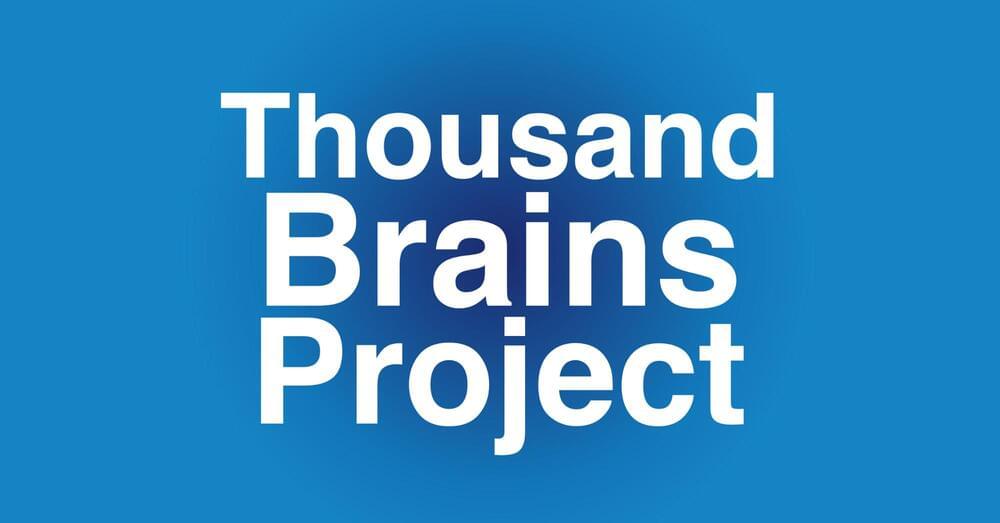
Thousand Brains Project
The efforts of Jeff Hawkins and Numenta to understand how the brain works started over 30 years ago and culminated in the last two years with the publication of the Thousand Brains Theory of Intelligence. Since then, we’ve been thinking about how to apply our insights about the neocortex to artificial intelligence. As described in this theory, it is clear that the brain works on principles fundamentally different from current AI systems. To build the kind of efficient and robust intelligence that we know humans are capable of, we need to design a new type of artificial intelligence. This is what the Thousand Brains Project is about.
In the past Numenta has been very open with their research, posting meeting recordings, making code open-source and building a large community around our algorithms. We are happy to announce that we are returning to this practice with the Thousand Brains Project. With funding from the Gates Foundation, among others, we are significantly expanding our internal research efforts and also calling for researchers around the world to follow, or even join this exciting project.
Today we are releasing a short technical document describing the core principles of the platform we are building. To be notified when the code and other resources are released, please sign up for the newsletter below. If you have a specific inquiry please send us an email to [email protected].
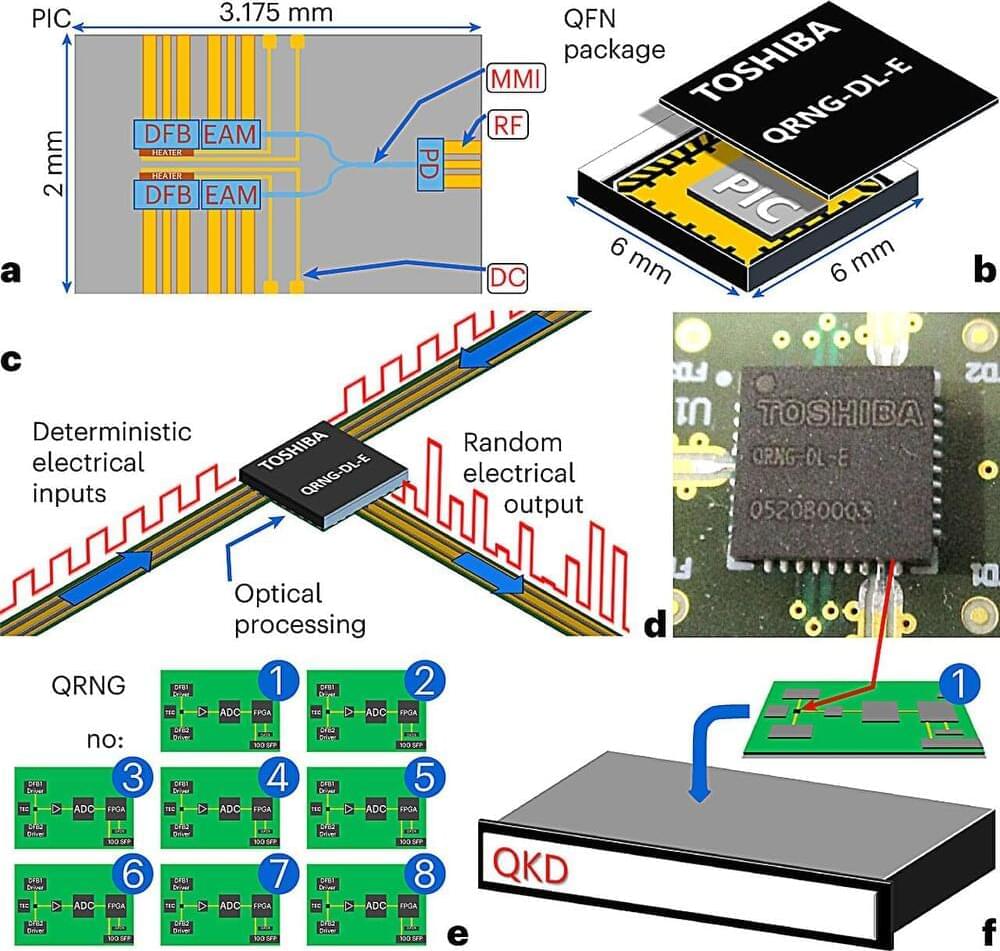
New quantum random number generator achieves 2 Gbit/s speed
The reliable generation of random numbers has become a central component of information and communications technology. In fact, random number generators, algorithms or devices that can produce random sequences of numbers, are now helping to secure communications between different devices, produce statistical samples, and for various other applications.
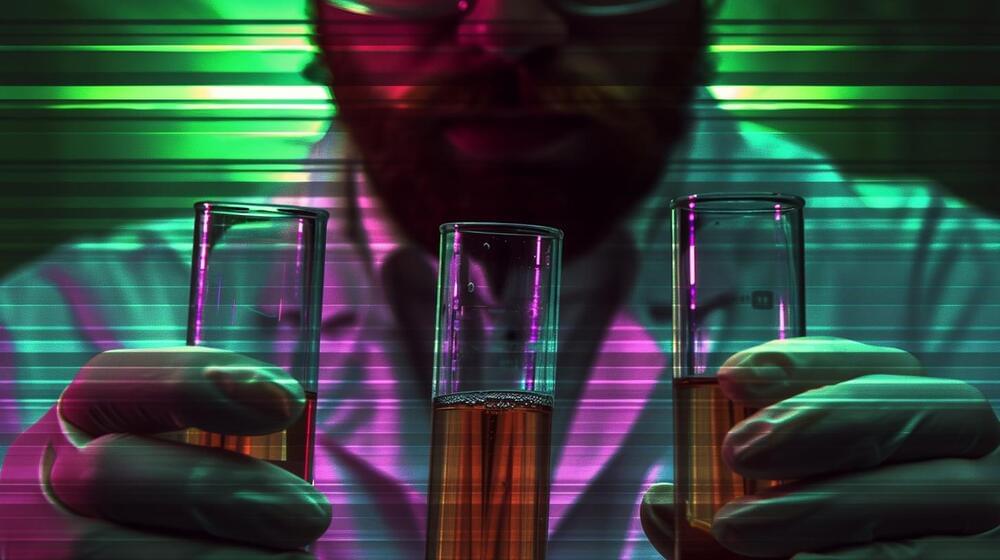
Springer Nature cracks down on AI research fraud using AI tools
Delicious.
Science publisher Springer Nature has developed two new AI tools to detect fake research and duplicate images in scientific papers, helping to protect the integrity of published studies.
The growing number of cases of fake research is already putting a strain on the scientific publishing industry, according to Springer Nature. Following a pilot phase, the publisher is now rolling out two AI tools to identify papers with AI-generated fake content and problematic images — both red flags for research integrity issues.
The first tool, called “Geppetto,” detects AI-generated content, a telltale sign of “paper mills” producing fake research papers. The tool divides the paper into sections and uses its own algorithms to check the consistency of the text in each section.
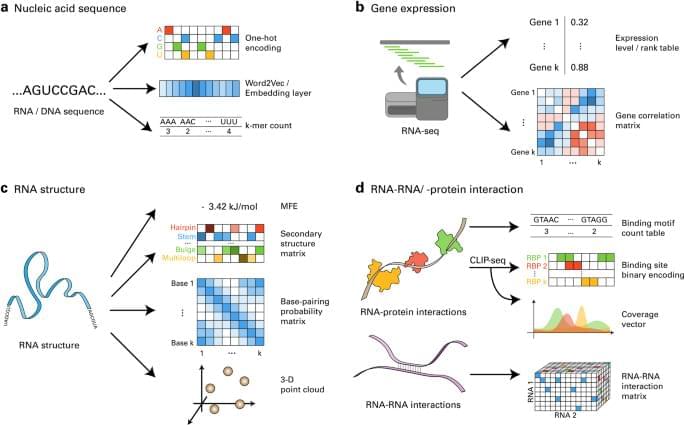
Big data and deep learning for RNA biology
This review spotlights the revolutionary role of deep learning (DL) in expanding the understanding of RNA is a fundamental biomolecule that shapes and regulates diverse phenotypes including human diseases. Understanding the principles governing the functions of RNA is a key objective of current biology. Recently, big data produced via high-throughput experiments have been utilized to develop DL models aimed at analyzing and predicting RNA-related biological processes. This review emphasizes the role of public databases in providing these big data for training DL models. The authors introduce core DL concepts necessary for training models from the biological data. By extensively examining DL studies in various fields of RNA biology, the authors suggest how to better leverage DL for revealing novel biological knowledge and demonstrate the potential of DL in deciphering the complex biology of RNA.
This summary was initially drafted using artificial intelligence, then revised and fact-checked by the author.